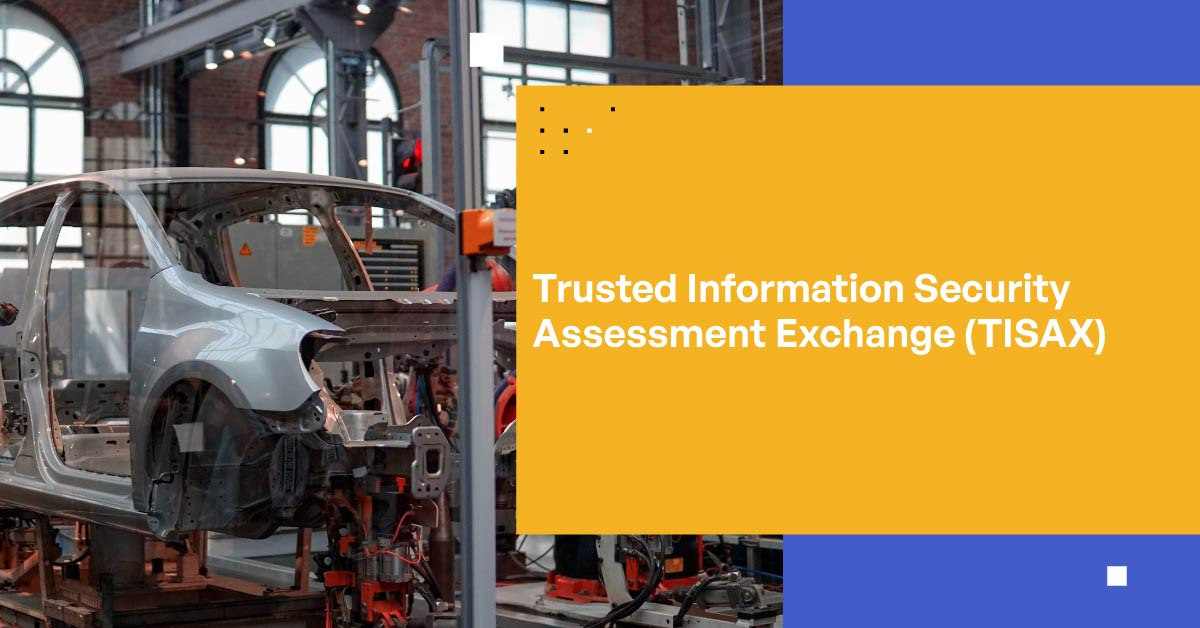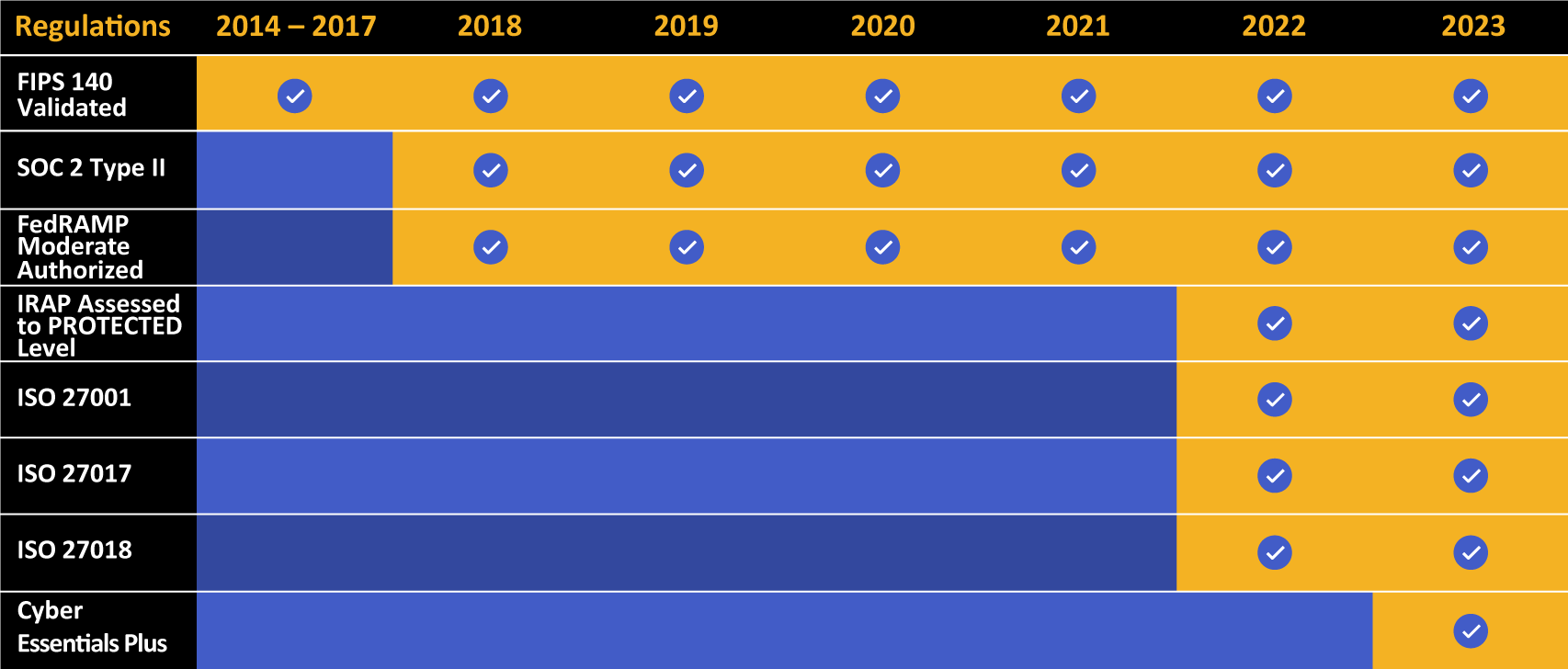Understanding TISAX: A Comprehensive Guide to Information Security in the Automotive Industry
The Trusted Information Security Assessment Exchange (TISAX) is a widely recognized and accepted mechanism for the automotive industry to evaluate compliance with information security requirements. Established by the ENX Association, TISAX provides a comprehensive framework that can be used by automotive manufacturers, suppliers, and service providers to effectively manage, monitor, and improve their information security postures.

As industries increasingly adopt technology to streamline their operations, data security is more important than ever, and the automotive industry is no exception. Cars, for example, are no longer just mechanical devices but are now complex information systems, creating an imperative need for stringent security measures. This is where TISAX comes in, offering a tailored approach to information security for the automotive industry by considering its specific requirements and unique vulnerabilities.
What is TISAX?
With technology at the heart of every business, data security has become an integral part of every business model, and the automotive industry is no exception. TISAX was developed to ensure the protection of data and information.
But what is TISAX? It is a standard for information security established by the German Association of the Automotive Industry (VDA), aimed at providing a universal framework for data protection in the automotive sector.
TISAX’s primary goal is to establish a standard for evaluating and improving the information security of organizations involved in the automotive industry. It does this by focusing on a set of fundamental principles all organizations should adhere to. These TISAX principles help align the industry’s information security strategies, thus creating a coherent and unified approach towards managing potential risks.
Implementing TISAX compliance requirements is consequently not just about fulfilling a regulatory obligation; instead, it’s about creating an environment where information security is embedded in the DNA of an organization’s culture and operations. Thus, it promotes a more proactive and informed approach towards managing information related risks in the automotive industry.
Why is TISAX Needed?
TISAX compliance is necessary as it addresses the unique security needs of the automotive industry, ensuring information protection throughout all stages of vehicle production and beyond. This compliance standard intends to create a higher level of trust among industry players, making the sharing of sensitive data safer and more secure.
With TISAX, each organization is also provided with a common understanding of the security measures they need to implement.
These protective measures are outlined in the TISAX principles, each addressing different areas such as information security management, connection to third-party data, prototype protection and secure testing. Compliance with these principles demonstrates a company’s commitment to the protection of data, fostering trust amongst the industrial peers.
The TISAX certification process involves a comprehensive self-assessment followed by an audit conducted by a certified TISAX assessment provider. By obtaining a TISAX certification, automotive companies guarantee their commitment to data security, reinforcing their reputation in the industry. Hence, embracing TISAX is not just about adhering to a standard, but more about securing the future of the automotive industry.
Understanding TISAX Principles
TISAX principles are the bedrock of the TISAX standard, encompassing a wide range of aspects revolving around information security. They include principles such as the need for organizations to maintain a comprehensive understanding of their information security landscape, implement efficient access control and authentication mechanisms, and maintain an appropriate incident response plan. These principles are meant to guide automotive companies towards adopting measures that safeguard their information systems efficiently.
Another crucial TISAX principle is the emphasis on continuous improvement. This principle encourages organizations not only to maintain but also continuously improve their security posture. By keeping updated with the latest trends and threats in information security, organizations can stay one step ahead of potential attackers. This approach is in line with the nature of the digital world, which is dynamic and ever-changing.
TISAX principles form the foundation of the TISAX standard, incorporating an array of facets related to information security. Here are some other key principles:
- Comprehensive Understanding: One of the primary TISAX principles is the necessity for organizations to develop an in-depth understanding of their information security environment. This involves understanding the potential vulnerabilities, risks, and countermeasures relevant to their information systems.
- Access Control and Authentication: These principles highlight the need for organizations to establish robust mechanisms for controlling access to their information systems. Furthermore, they need to implement effective authentication techniques to verify user identities.
- Incident Response: TISAX also stresses the importance of having a well-planned incident response plan in place. This means that organizations should be ready to take quick and effective action in the event of a security incident.
- Continuous Improvement: Another pivotal TISAX principle is the focus on ongoing enhancement. It prompts organizations to not only maintain their security posture but to also continuously refine it. By staying abreast with the latest trends and threats in information security, organizations can preemptively counter potential cyberattacks.
- Adapting to Dynamic Nature of a Digital World: This principle signifies the importance of adapting to the ever-evolving digital landscape. With the digital world being dynamic, organizations need to embrace this change and upgrade their security measures accordingly.
The underlying theme behind these principles is a call for automotive companies to adopt safeguards that protect their information systems effectively.

How TISAX Benefits Organizations and Consumers
Adherence to TISAX principles and compliance requirements brings organizations a myriad of benefits. It helps businesses ensure their operations are secure and that they are well protected against potential cyber threats. It also enhances their reputation as a trusted player in the automotive industry, which can be a significant competitive advantage in a market characterized by ever-increasing digitalization and connectivity.
On the consumer end, TISAX fosters trust and confidence in automotive technology. As modern vehicles come to rely more and more on advanced information systems, consumers need reassurance that these technologies are safeguarded against potential security threats. Thus, organizations that comply with TISAX are not just protecting themselves; they are also protecting the consumers who use their products and services.
TISAX Jurisdiction: Who Must Comply
One of the core TISAX principles is its wide jurisdiction, which requires any organization that handles sensitive information from the automotive industry to comply. This includes manufacturers, suppliers, service providers, and other third-party partners that need access to a company’s sensitive proprietary information. Not being TISAX compliant could significantly impact an organization’s business relationships within the automotive industry.
The TISAX compliance requirements work towards establishing a strong information security system to protect valuable data. This is accomplished by following standardized procedures for conducting security assessments, implementing stringent measures to protect against data breaches or loss, and maintaining a secure network and systems environment. Compliance with TISAX shows that an organization is committed to maintaining a high level of data security, thereby building trust within the automotive industry.
In conclusion, TISAX certification is not optional if you operate within the automotive industry. It’s a mandatory requirement that shows commitment to uphold the highest standards of data security, build trust, and foster strong, secure business relationships within this industry. Thus, becoming TISAX compliant is important for any organization looking to establish themselves and thrive in the automotive sector.
TISAX Enforcement
The ENX Association, a consortium of European automotive manufacturers, suppliers, and organizations related to the industry, manages and governs this standard. The ENX Association executes TISAX via licensed audit providers who carry out the assessments and issue certificates. They ensure strict adherence to the TISAX compliance requirements.
The TISAX certification process includes assessment levels adjusted according to the specific company’s risk situation and the information’s protection requirements. TISAX principles follow the security guidelines of the ISO 27001 standard, focusing on areas such as connection with third parties, data protection, and prototype protection.
Overall, TISAX provides a uniform and standard process for information security assessments, reducing the number of required assessments and increasing recognition across companies. It removes the need for multiple audits by various manufacturers and suppliers, therefore offering a more efficient system. The adoption of TISAX certification has now become a vital requirement for businesses wanting to operate in the automotive industry.
Risks of Non-Adherence to TISAX
Non-adherence to TISAX can present significant risks for an automotive organization. Without a robust information security framework in place, companies expose themselves to the risk of data breaches, cyber-attacks, regulatory fines, and reputational damage. Additionally, non-compliance with TISAX may lead to loss of business, as it could result in being disqualified from participating in the supply chain of major automotive manufacturers.
Not only is TISAX a regulatory requirement for many in the automotive industry, but it is also a sensible business practice. Ensuring that an organization is TISAX compliant is a critical step towards mitigating potential security risks and ensuring the ongoing success of a business in an increasingly digital world.
Key Features of TISAX and Certification Requirements
TISAX is characterized by a set of uniquely crafted principles and controls that cater specifically to the automotive industry’s information security needs. The TISAX certification process involves an in-depth assessment of an organization’s information security posture, covering areas such as data protection, access controls, incident management, and business continuity.
To adhere to TISAX, organizations must demonstrate that they meet various compliance requirements. This includes developing and implementing a robust information security management system, regularly evaluating and improving their security practices, and demonstrating a commitment to ongoing security awareness training. Successful adherence to TISAX is recognized by the issuance of a TISAX certification, which signals an organization’s commitment to maintaining high standards of information security.
The TISAX Certification Process
The TISAX certification process is a rigorous assessment designed to verify an organization’s adherence to TISAX principles and compliance requirements. The process involves an evaluation of the organization’s ISMS, security infrastructure, and practices. This assessment typically revolves around controls related to data protection, access control, threat detection, incident management, and business continuity, among others.
On completing the evaluation, organizations that successfully demonstrate compliance are awarded TISAX certification. This certification is an industry-recognized indication that an organization takes information security seriously, and has the necessary measures in place to protect its systems and data. It is an important mark of trust and credibility in the automotive industry, contributing significantly to an organization’s reputation and competitive advantage.
The TISAX certification process essentially involves undergoing an assessment by an accredited audit provider. This process evaluates the organization’s adherence to high-level information security and data protection standards. It covers areas such as managing employee access to sensitive data, secure development practices, and handling of third-party data.
The TISAX certification process is comprehensive and includes an independent audit that assesses the company’s adherence to the stringent TISAX standards. Once the audit is completed and the company demonstrates its adherence to these standards, the TISAX certificate is awarded. This certification is valid for three years and can be extended with regular audits.
There are numerous benefits of obtaining TISAX certification. It not only demonstrates to customers and partners your strong data protection and information security practices, but also builds trust within the industry. It can also open up exciting new business opportunities, as many leading automotive manufacturers and suppliers now need their partners to be TISAX compliant.
TISAX Certification Benefits
TISAX allows companies to demonstrate their commitment to information security and data protection, thereby gaining competitive advantage and building trust with customers and partners.
Moreover, TISAX certification helps streamline the auditing process by providing a standardized framework, eliminating the need for multiple audits from different manufacturers. This leads to a more efficient process and reduces the risk of non-compliance. Thus, understanding what is TISAX, its principles, compliance requirements and the certification process is essential for any organization aiming to succeed in the automotive industry.
Kiteworks Helps Organizations Comply with TISAX
In conclusion, TISAX plays a vital role in information security within the automotive industry. Through its set of unique principles, TISAX provides a robust framework for automotive companies to evaluate, monitor and improve their security postures. Its compliance requirements emphasize not only the implementation of protective measures but also the cultivation of a proactive and informed approach to managing information-related risks.
The TISAX certification process acts as a rigorous evaluation of an organization’s commitment to information security, awarding successful organizations with a mark of trust and credibility. In this increasingly digital era, adhering to TISAX is much more than a regulatory obligation. It is a commitment to the security of the organization’s systems, data, and ultimately, the consumers who depend on their products and services.
Kiteworks Helps German Automotive Manufacturers Protect Their Intellectual Property With Advanced Encryption
Encryption offers immense potential for intellectual property protection in the German automotive industry. Understanding the importance of intellectual property in the automotive context and recognizing the limitations of traditional protection measures are crucial steps towards embracing encryption. By leveraging encryption technologies, the German automotive sector can ensure the long-term security and prosperity of its intellectual property, ultimately driving innovation and competitiveness in the industry.
The Kiteworks Private Content Network, a FIPS 140-2 Level validated secure file sharing and file transfer platform, consolidates email, file sharing, web forms, SFTP and managed file transfer, so organizations control, protect, and track every file as it enters and exits the organization.
With Kiteworks, manufacturing companies utilize Kiteworks to share confidential product designs, production schedules, quality control reports and other sensitive content with colleagues, clients, or external partners. Because they use Kiteworks, they know their sensitive data and priceless intellectual property remains confidential and is shared in compliance with relevant regulations like GDPR, NIS 2, ISO 27000 Standards, U.S. state privacy laws, and many others.
Kiteworks deployment options include on-premises, hosted, private, hybrid, and FedRAMP virtual private cloud. With Kiteworks: control access to sensitive content; protect it when it’s shared externally using automated end-to-end encryption, multi-factor authentication, and security infrastructure integrations; see, track, and report all file activity, namely who sends what to whom, when, and how. Finally demonstrate compliance with regulations and standards like GDPR, HIPAA, CMMC, Cyber Essentials Plus, IRAP, and many more.
To learn more about Kiteworks, schedule a custom demo today.

